By Nathan Smith
Imagine walking five to 10 miles each day for drinking water. Imagine not knowing where tomorrow’s food is coming from. Imagine living in a home with a thatch roof and dirt floor–a single pan for cooking all meals.
We’ve all seen the pictures and videos from third-world countries. We’ve heard the stories of poverty and despair. Last week, I returned to Texas from Benin, Africa, where the people don’t have to imagine the scenarios above–they live them every day.
Benin is a West African country about half the size of Pennsylvania. I’ll never forget what I witnessed there.
For the average citizen, every day is a struggle to survive. They live without refrigerators, without reliable electricity or sanitation. They have adapted and conduct business as they have for the last few thousand years. Thatch roof stands line the roads into each village with merchants selling their wares.
In Benin, there is no Wal-Mart. The country imports more than 80 percent of its food. There are no quick trips to the store for milk that has a government seal of inspection or expertly-cut beef steaks free from E. coli. These people are hungry. They eat what they can grow in their region. If it doesn’t rain, they have to travel a great distance and pay high prices elsewhere for food.
On this trip I realized I’ve never been hungry in my life. When I got home, I opened my refrigerator and it was an emotional moment. The amount of food I saw could feed dozens of people. The sheer abundance and variety was enough to shake me up inside.
I talked to some farmers with a translator’s help, and they were amazed at the way we grow food here and how it’s shipped across the country. I described our grocery stores, with some embarrassment, and their eyes grew wide. The idea of wealth and a never-ending food supply was totally foreign to them.
For us, it’s part of normal life. We count on food to be on the shelves and in our pantries and refrigerators. We take it for granted.
What these people lack in infrastructure and food security, they make up for in gratitude. Each meal is a blessing, a helping hand is always acknowledged and they were willing to share everything they had with me. Benin and other countries like it have many challenges ahead but their attitude toward food is one we could all learn from.
Hats off to all the farmers, ranchers and gardeners wherever they may be!
A man prepares salsa with peppers and onions.
A common farming tool. Most furrows and gardens are cultivated by hand.
Children play next to a corn field near Cotonou, Benin.
Pineapples lie beside the road, ready for sale.
Chili peppers ripen on the vine.
Crowded streets, poor road construction and heavy smog make transportation slow in Benin.

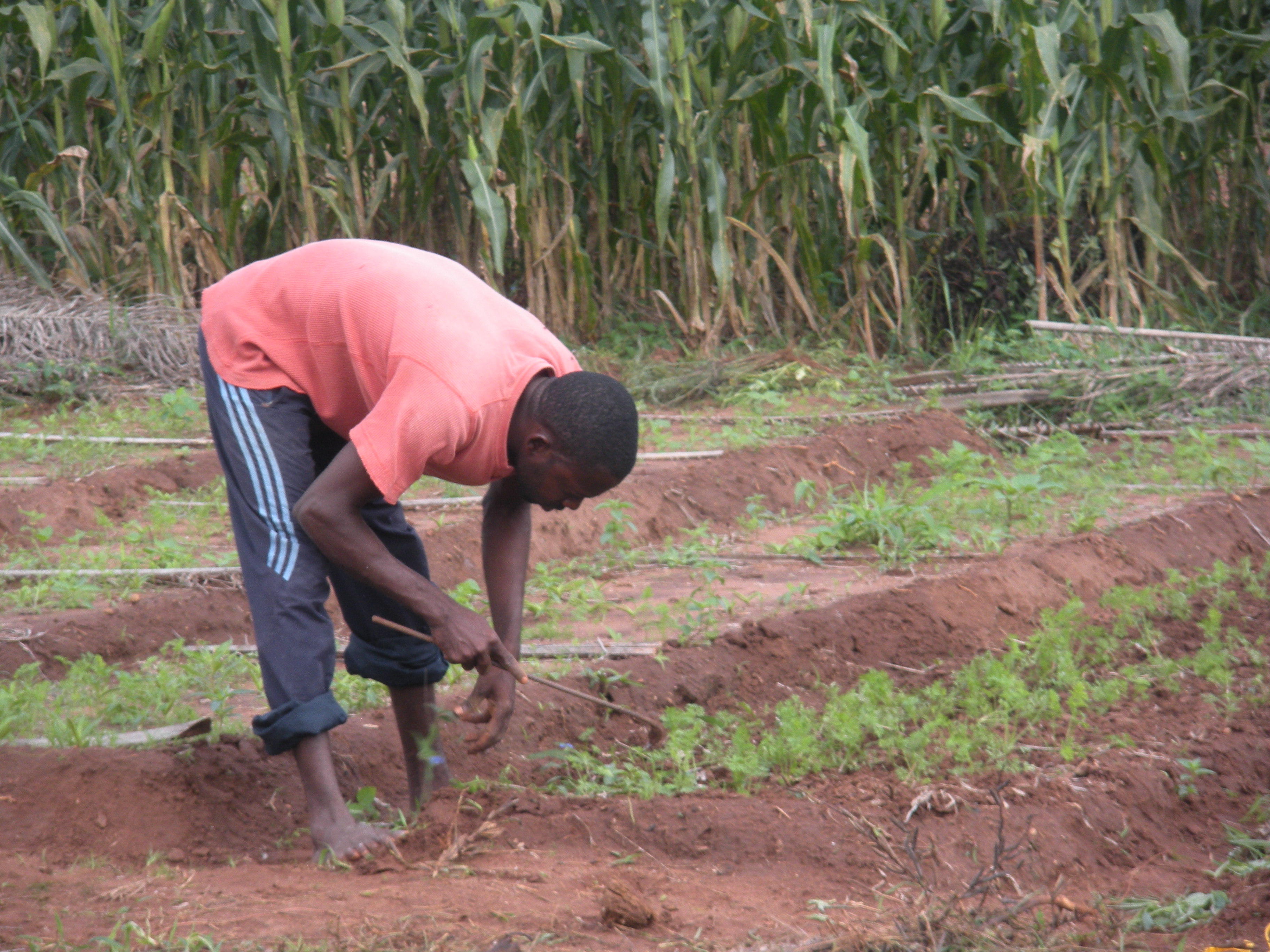
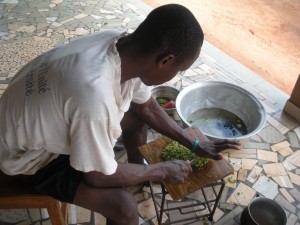
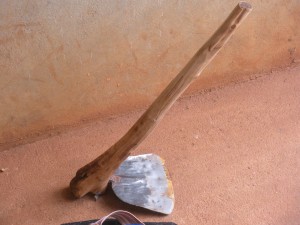

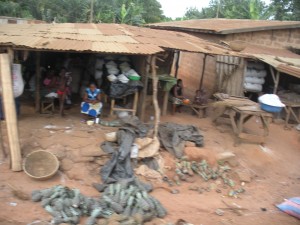
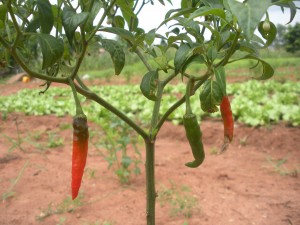



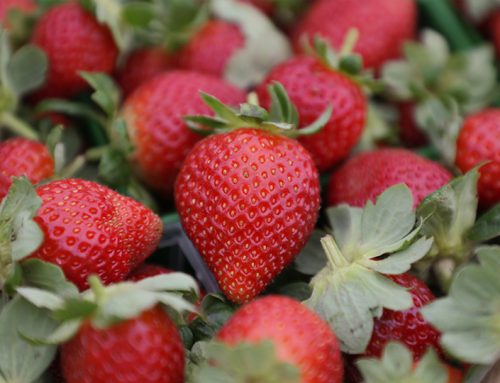
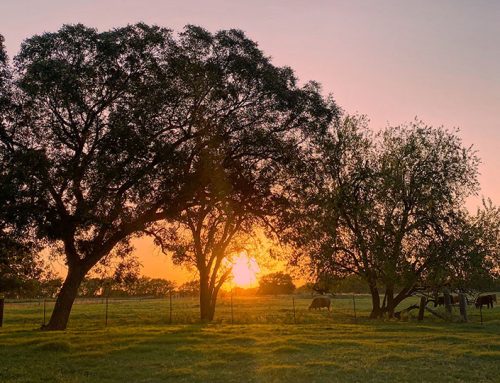
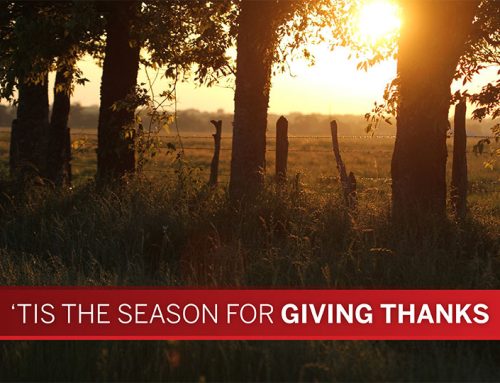



Awesome story. I appreciate your passion for farmers and ranchers!
Some want the U.S. to “go back to the start.”
Your story illustrates what the starting line looks like.
Anthony, you are absolutely right. We are fortunate to have the resources and ability to feed ourselves with food grown in the United States. Sometimes it takes a new perspective to remind us of our many blessings. Great post, Nathan.
Thanks for the comment Anthony. Well said!
Nathan,
You are forever changed. I have been to Togo, Benin’s neighbor to the west, twice. I have a picture much like yours, mine a short handled hoe leaning against a mud brick church. The subsistent agriculture is heart breaking. When I returned from my first trip in July of 2007 it did not seem so bad that I had lost most of my wheat crop from excessive rain earlier in the year. I still got to come home to Texas and did not have to worry about where my next meal was coming from. I, like you, have seen hungry people. When I hear critics of modern agriculture complain about it’s produce, I think of those in sub-Saharan Africa trying to survive from one day to the next and how they could benefit from more modern practices. Thanks for the story, it tugs at my heart and makes me think it is way past time to return.
Thank you for the comments Charles Ray.You’re right – I am forever changed. The depth of poverty was truly humbling. Critics of the modern food system would do well to take a trip to a third-world country. I hope to make this trip again. The country is poor, in need of modern farming technical assistance but the people are resilient and I never heard any complaining. They smile and take things as they come.
I’ve never been to Africa. I’ve never really been hungry but without modern ag we could see this kind of thing in much of the world.let’s keep working for a strong agriculture.